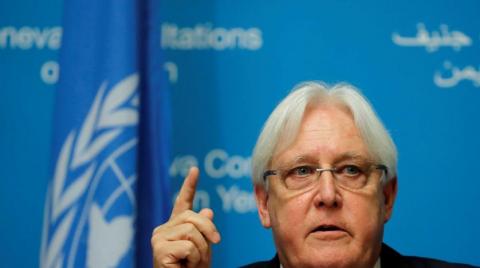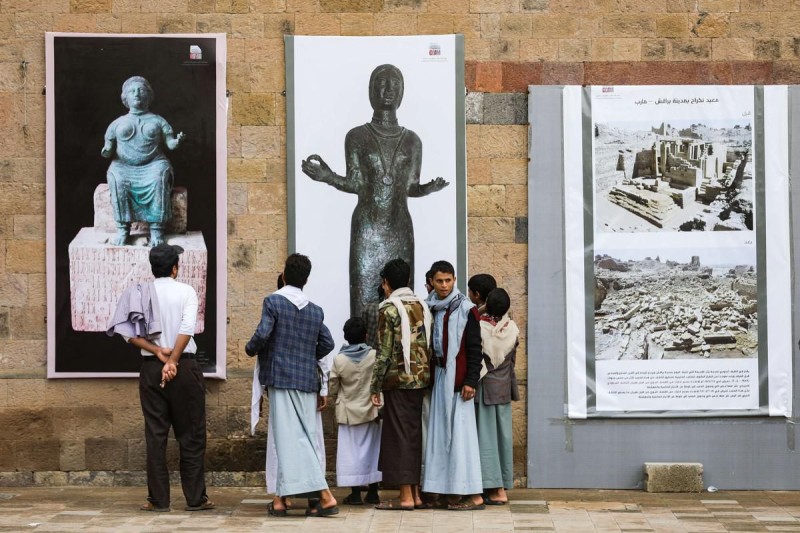Yemen: Houthis Continue to Blackmail Sanaa's Merchants


The Houthi militias are once again targeting merchants and small shopkeepers in Sanaa by blackmailing and threatening them as well as illegally imposing huge sums of money on them under different pretexts.
Traders and shopkeepers in the capital told Asharq Al-Awsat that the coup militias raided earlier this week a number of barbershops, bakeries, and laundries and forced them to pay 20 percent of their income, claiming it was for “Khoms”.
Traders confirmed that the armed militias stopped at their shops and threatened them in a humiliating manner in case they do not pay the required amount. They said Houthis even raided women’s workplaces like hairdressers.
The merchants and shopkeepers reiterated their rejection of these continuing levies, demanding to end the militias’ injustice.
They said, in separate interviews with Asharq Al-Awsat, that the illegal money deduction imposed by the militias are described as Khoms, war effort, taxes, or Zakat.
Also, the coup militias issued a new circular preventing merchants in Sanaa from using new editions of monetary categories issued by the Central Bank in Aden. Another circular required merchants to pay royalties and financial levies under the pretext of “food convoys to support the militia on fronts.”
They threatened with shutting down the shop of any owner who fails to pay these amounts and violates the Houthi orders.
Many merchants and shopkeepers in Sanaa and other cities under insurgents’ control have suffered from injustice, arbitrariness, and oppression.
Over the past four years, the group imposed several levies and royalties on a number of traders and street vendors in areas under its control through armed raids.
Speaking to Asharq Al-Awsat, local observers pointed out that the recent Houthi circular reveals the militias' intention to loot, once again, millions of riyals from banks and commercial companies in their areas of control under the pretext of dealing with the new monetary categories.
In turn, local economists emphasized the negative repercussions of the militia's actions, which worsens the citizens' suffering due to a lack of liquidity.
Economists, who spoke to Asharq Al-Awsat, condemned the continuous Houthi violations and crimes against merchants and the remaining private sector in Sanaa and other Yemeni cities under the group’s control.
They said that the militias imposed the latest financial levies with the main objective to finance its battles on the fronts and operations. They affirmed that Houthi leaders stand behind these levies and royalties, which are imposed by force on Yemeni citizens in their areas.

Sana’a – The General Authority for Antiquities and Museums, operating under the control of the Houthi militia in the occupied capital S…

Hadramout — UNESCO has officially inscribed Al-Dan Hadrami, a traditional poetic and musical art form from Yemen’s Hadramawt region, on…

NewYourk  -- The renowned auction house Sotheby’s has revealed plans to present one of the rarest surviving Yemenite Torah scrolls in it…